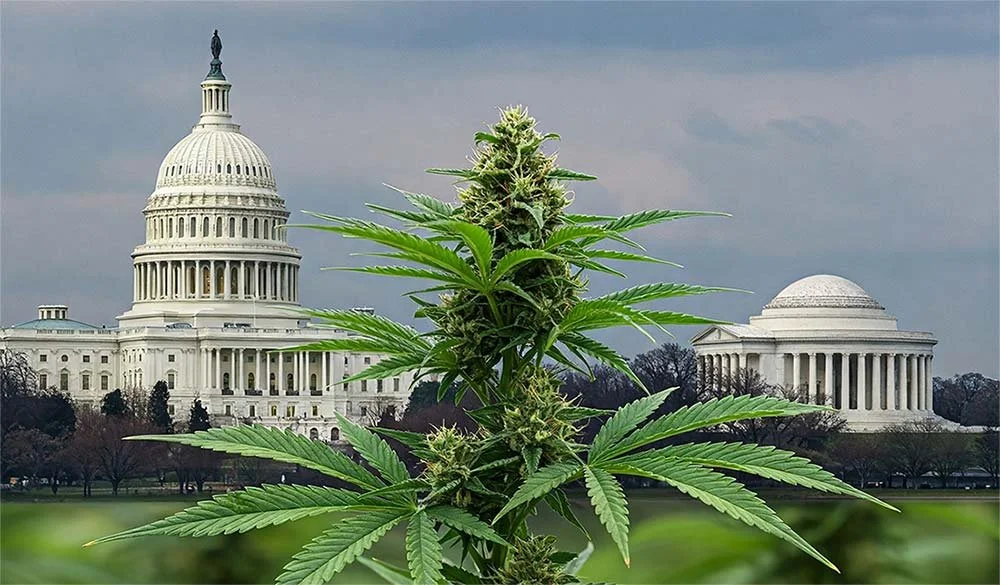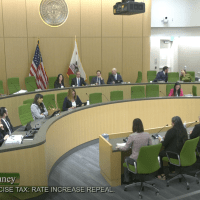 Efforts to reform federal cannabis laws remain stuck on hold in Washington, D.C.
Efforts to reform federal cannabis laws remain stuck on hold in Washington, D.C.
There is no indication as to whether the administration plans to move marijuana from Schedule I to III, as proposed by the Biden administration in April 2024. The DEA’s leadership has expressed skepticism about the proposal and has been sitting on it ever since. President Trump is reported to have privately indicated his interest in rescheduling to cannabusiness interests. However, his advisors are thought to have mixed views. In August, Trump declared that he was actively reviewing the question and would reach a decision in “the next few weeks.” So far he has failed to act.
NORML believes that cannabis should be de-scheduled, not re-scheduled, in order to become federally legal. That said, Cal NORML supports rescheduling to Schedule 3 as an interim measure. A major advantage of Schedule 3 classification would be to relieve canna-businesses from the IRS Section 280e tax provision, which bars them from claiming most business tax deductions. The 280e taxes have been estimated to cost as much as 25% of business revenues. Schedule 3 would be a major financial boon to the legal cannabis industry, which is struggling to break even and compete with illegal traffickers (Schedule 2 would not provide 280e tax relief, however). Rescheduling would in no way change the illegal status of state-legal cannabis under federal law. Only FDA-approved Schedule 3 cannabis pharmaceuticals could become legal. Such products would take years to develop and would likely be far more expensive than home-grown or dispensary-bought cannabis.
There appears to be no chance of any action to legalize or de-schedule cannabis in the current Congress, whose conservative Republican leaders – Speaker Mike Johnson of Louisiana and Sen. John Thune of South Dakota – have long been hostile to the idea. More modest reforms, such as safe banking legislation to facilitate access to financial services for canna-businesses, have languished for lack of support in Congress.
To the disappointment of veterans, an amendment to let V.A. doctors recommend medical cannabis was dropped from the budget bill. Instead, the bill included a last-minute amendment to ban psychoactive hemp products, a popular choice in states without legal adult-use cannabis laws. Hemp advocates, led by Sen. Rand Paul (R-KY) and Rep. Nancy Mace (R-S.C.), are seeking to reverse the hemp ban. (Read more.)
As in previous years, the Congress approved a budget amendment to prevent the Department of Justice from interfering in state medical marijuana laws. Efforts to extend the ban to protect adult-use laws have fallen short. Congress has likewise continued to block the District of Columbia from establishing adult-use dispensaries, although they were authorized by DC voters.
The first Trump administration rescinded Obama’s Cole Memorandum, which instructed prosecutors to refrain from targeting state-legal marijuana businesses. Now, the DOJ has announced that it will no longer ignore marijuana possession offenses on federal land such as national parks. The U.S. attorney for Wyoming has announced that such offenses will henceforth be “rigorously prosecuted.”
With action in Congress stalled, cannabis advocates have turned to the Supreme Court, which will be hearing a challenge to the federal ban on gun ownership by marijuana users. The court will be reviewing an appellate court ruling that overturned the conviction of a Texas man charged with a felony because he had a gun at his home and was an acknowledged regular cannabis user. The appeals court dismissed the conviction on the grounds that a blanket ban on gun ownership for illegal drug users would violate the Supreme Court’s Bruen decision, which expanded the right to own firearms. NORML attorneys are submitting an amicus brief in support of Second Amendment rights for cannabis users.
In another case, the Supreme Court has been asked to review the constitutionality of the federal law against cannabis in states where it is legal. A group of cannabis companies have petitioned the court to reconsider its 2004 decision in Gonzalez v Raich, which declared that the Controlled Substances Act overrode California’s law protecting medical marijuana users on account of the federal government’s interest in preventing interstate commerce in marijuana. Petitioners argue that “changed circumstances,” including federal prosecutors’ de facto tolerance of state legalization laws, militate for reversing Gonzalez v Raich.
This article is from Cal NORML’s year-end newsletter. Support Cal NORML and receive our newsletter by becoming a member today.



